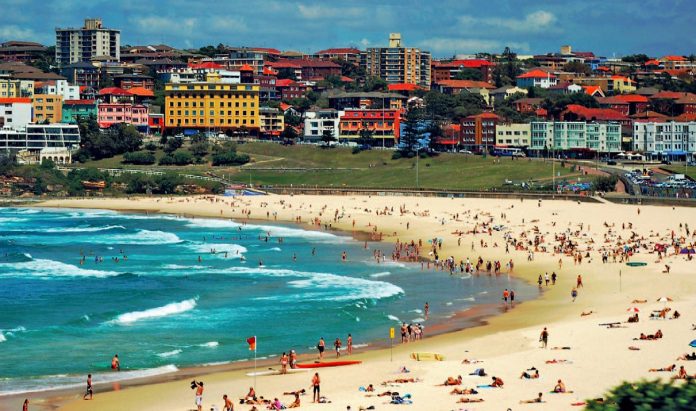Phiona Stanley reviews the pros and cons of teaching “down under”
Ah, Australia: surf some big waves, take a selfie with a quokka, and hang out in quirky urban spaces. The sun shines, the people are welcoming, and – at least until the coronavirus outbreak – around 240,000 jobs are generated directly by an international education industry worth AU$38 billion a year. That’s bigger than tourism and second only to mining for earning export dollars.
So, where Australia calls, 750,000 international students a year follow. And someone needs to teach them.
Within the broader international education industry – dominated by universities and vocational education colleges – sits the smaller but hugely important English Language Intensive Courses for Overseas Students (ELICOS) sector.
‘Smaller’ is relative, though. Nearly 180,000 students study English language in Australia each year. This is the sector in which you’ll find Tesolers working in university colleges, Technical and Further Education (TAFE), and language schools. (And yes, as in North America, the industry is collectively known as Tesol rather than Tefl or ELT.)
And all teachers’ pay, across Tesol sectors, is externally set by the government’s Fair Work Commission, although some employers pay slightly more under their own ‘Enterprise Agreements’.
Sounds amazing! Where do I sign up?
Your first hurdle is a visa. If you’re an Australian or New Zealand citizen then no worries, mate.
Otherwise, you’ll need to bear in mind that there are almost no employer-sponsored visas in this sector (one exception is for roles such as Celta trainers, where you can demonstrate to the immigration department that no one locally can do your job).
If you’re under 31, from one of the 40-odd eligible countries (including the UK, Ireland, USA and Canada), and you don’t have dependent children, then a working holiday visa may be your best bet. This lets you spend a year in Australia, but only up to six months working for any one employer.
Next best advice: fall in love and come in on a partner visa!

OK, my paperwork is in order, what now?
There are big differences between the three Tesol employer types in terms of qualifications and working conditions. These are outlined below.
Language schools
Teachers need a minimum of a university degree (in any subject) and an Australian Qualifications Framework (AQF) level four qualification; the Cambridge Celta is one.
Armed with these, your best opening gambit is to send CVs to schools, as teaching vacancies are not usually advertised. You can find a directory of the better language schools on the English Australia website.
Language school teachers are mostly hired on an hourly or daily basis, and the work is seasonal, peaking over summertime (October to March). This means that there’s usually no access to holiday pay or paid sick leave.
However, all employers pay pension contributions (called superannuation, abbreviated to ‘super’) at a minimum of 9.5% of your earnings, and if you leave Australia after a working holiday, you can get about 60% of this money back.
The seasonal nature of the work tells you a lot about language-school students: many are on working holidays themselves, taking some English classes before setting off up the coast for an adventure. A few are more ‘serious’, improving their English ahead of Ielts exams and so on.
But expect fun: your students will turn up with salt in their hair, sun-kissed after beach barbeques. Within this tourism-meets-education world, the tricky notion of ‘authenticity’ haunts language schools’ marketing, and students may complain about non-native teachers and non-Aussie homestays.
The schools, trying to stay in business, understandably tend to sell back to the students what they already think they “know” about Australia (blond surfer types, etc.), thus perpetuating a lot of the stereotypes. A vicious circle that makes it harder to find work if you don’t look and perform the part.
Despite the fact that salaries are externally set, they are still extremely challenging to live on, particularly in Sydney or Melbourne. If you have a degree plus a Celta and two years’ teaching experience, you’ll start on Step 4 of the salary scale, although this may take some negotiating: some schools won’t recognise overseas experience.
The Step 4 annual teacher’s salary is AU$53,300 (US$35,380/£27,300), with a weekly gross pay of AU$1020, which equates to AU$834 in your hand each week after tax.
This might sound do-able, but bear in mind that the Australian cost of living is high: renting a one-bedroom flat within half an hour’s train ride of central Sydney (where many of the language schools are located) costs around AU$450/week. Melbourne is similar.
If you’re a more experienced teacher, you’ll find this is double-edged sword. On paper, teachers with a degree, Celta, Delta/Masters in Tesol, and a decade or more of classroom experience would be on Step 12, earning around AU$66,000, or AU$1000/week after tax.
The snag is that, for a lot of language schools, you’re now too expensive. This means that you’ll hear stories of would-be teachers in job interviews bargaining their own salary down to ensure they get work.
TAFE
There’s much less casual work in the TAFE sector. But the pay is much better, starting around AU$53,000 (annually) and going up to AU$91,000 for more experienced teachers.
To work in TAFE, you will need a Masters in Tesol (rather than a Celta) and also the Certificate IV in Training and Assessment, which you can take locally/online or by recognised prior learning (i.e. your previous teaching and assessment experience is accredited).
TAFE jobs are advertised through each state’s TAFE website and, as there are colleges all over the country, you’re less likely to need to live within commuting distance of the (expensive) inner cities. This is because TAFE teaching work is largely with new migrants rather than short-term international students.
One of the most rewarding aspects is that non-native teachers are positively celebrated. For a newly arrived migrant, having a teacher who has learned English themselves is a wonderful inspiration.
“One of the most rewarding aspects is that non-native teachers are positively celebrated.”
University colleges
Like TAFE, university college salaries are much better, and non-native teachers are usually welcome. Also like TAFE, university colleges tend to ask for Tesol Masters degrees rather than Celta (or Delta, which is not widely recognised in Australia). But there is some leeway here, with some degree-plus- Celta-qualified teachers finding work during peak periods.
As with language schools, the work is seasonal and casual. But here this isn’t because the students are on the beach. Instead, the demographic is mostly Chinese students (and a few Nepalese, Saudis and others) taking pre-university courses to hone their academic English skills to gain direct entry to degree programmes.
This means that the cohort is quite homogenous. Most have upper-intermediate levels of English, are in need of academic skills development and are motivated by assessments.
The busy periods are the three months in the run up to the start of each semester: November to January (for semester 1 starts) and April to July (for semester 2). As some universities are now switching to a trimester system, this is changing, but the busy periods remain the run-up to each university enrolment period.

Covid-19 update
As Zhou Enlai said in the 1970s, apocryphally of the 1789 French Revolution, it is “too soon to tell” what the long-term effects will be, not least as the outbreak has exposed just how many of the sectors’ eggs have until now been in the single basket marked ‘China’. The casualisation of ELICOS work in Australia means that any drop in student numbers results in unemployed teachers, and—at time of writing—the student flow has all but dried up.
Higher education is worst hit, as the travel restrictions began at the start of the academic year and many institutions put in place a hiring freeze. But the English language sector, particularly the university pathway colleges, cannot be far behind.
Perhaps there will be silver linings: a diversification of the market or a rethink of the stepped salary system. But, for now, English teachers are clamouring for other jobs. In the case of one teacher I know in Sydney, turning to artisan sourdough baking instead. I wish them well. These are hard times for everyone. But it is too soon to tell what the long-term effects will be.







